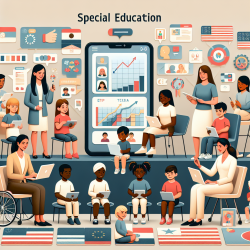Introduction
As practitioners dedicated to fostering the cognitive development of children, it is crucial to understand the various factors that can impede or enhance this process. A recent study titled Malaria illness mediated by anaemia lessens cognitive development in younger Ugandan children provides valuable insights into how malaria and anaemia can impact cognitive outcomes in young children. This blog will explore how these findings can inform our practices and encourage further research to improve children's developmental trajectories.
Understanding the Research
The study conducted in Uganda evaluated the effects of malaria and anaemia on cognitive development in children aged 2 to 3 years. The research found that repeated episodes of malaria, particularly when accompanied by anaemia, were associated with poorer cognitive performance as measured by the Mullen Scales of Early Learning (MSEL). This relationship was more pronounced in children who were perinatally HIV-exposed but uninfected (HEU) compared to those who were HIV-unexposed and uninfected (HUU).
Key Findings
- Malaria episodes negatively impacted cognitive performance, with anaemia serving as a mediating factor.
- HEU children exhibited more significant cognitive deficits than HUU children, highlighting the compounded risk factors.
- Effective malaria prevention strategies, such as chemoprevention, can mitigate these adverse outcomes, although adherence to treatment protocols remains a challenge.
Implications for Practice
For practitioners working with children in malaria-endemic regions, these findings underscore the importance of integrating health interventions with educational strategies. Here are some actionable steps:
- Early Screening and Intervention: Regular screening for malaria and anaemia in young children can help identify those at risk of cognitive delays. Early intervention can then be tailored to support their developmental needs.
- Collaboration with Health Professionals: Speech-language pathologists should collaborate with healthcare providers to ensure comprehensive care that addresses both medical and developmental needs.
- Parental Education: Educating parents about the importance of malaria prevention and treatment adherence can enhance the effectiveness of interventions.
Encouraging Further Research
While this study provides critical insights, further research is needed to explore the long-term impacts of malaria and anaemia on cognitive development and the effectiveness of various intervention strategies. Practitioners are encouraged to contribute to this growing body of knowledge by participating in research studies and sharing their findings with the broader community.
Conclusion
By understanding the complex interplay between health and cognitive development, practitioners can make data-driven decisions that improve outcomes for children. The study on malaria and anaemia in Ugandan children highlights the need for comprehensive, interdisciplinary approaches to support the cognitive growth of young learners.
To read the original research paper, please follow this link: Malaria illness mediated by anaemia lessens cognitive development in younger Ugandan children.










